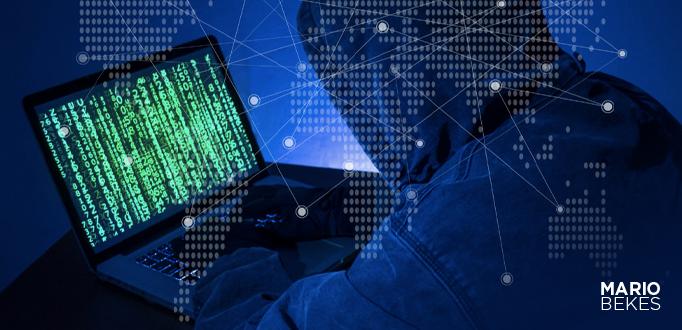Record Your Own High Quality Podcast

Before I start with this article I would like to ask, have you ever been the victim of hacking or unlawful accessing of your data?
Has your business computer been hacked? Has someone stolen your intellectual property?
The reality is we are living in the digital age, and it is so rapidly evolving with all those new updates, gadgets, and cyber security software that sometimes even I have found myself “left behind”.
Then for a moment I ask myself, “how many people have no clue what is going on with cyber security and how fraudsters and hackers operate and who they are targeting, when and why?”
The Covid lockdowns and remote work in actuality left most of society and business very much vulnerable while fraudsters and hackers utilised these circumstances to the maximum for their advantage.
I must now define what is Cyber Security and what better source to ask, than the always correct, willing and ready to answer, internet.
Yes, correct. I asked the internet to define Cyber Security. No doubt, if I asked several Cyber Security experts, I would be given different answers so let’s keep it nice and tidy and let the all-mighty internet answer for all of us.
Hence, the definition Cyber Security is:
“Cybersecurity is the protection of internet-connected systems such as hardware, software and data from cyberthreats. The practice is used by individuals and enterprises to protect against unauthorised access to data centres and other computerised systems.”
By this definition, we can all agree that our computers, phones and all our digital gadgets are a part of the nexus where cyber security and protection from cyber threats is applied.
In reality that is not so true.
According to Savvy’s online report (Bill Tsouvalas, 12th May 2022) [1] , in Australia 1 cyber-attack occurs every 10 minutes targeting SME’s, one in four Australians have fallen victim to identity fraud, and cybercriminals can penetrate 93% of company networks.
The most interesting and scariest fact is that cybercriminals can penetrate 93% of company networks. That is a truly scary fact and even more so as we are “working from home” where our security of our digital devices depends on commercial software and downloads from the internet.
I needn’t go further; the fraudsters and cybercriminals have already explored the loopholes.
While we, I mean, we humans, individuals, cannot protect our digital assets, perhaps we can believe that governments can protect themselves better.
An absolutely fair belief, however, pollination of cyberthreats is going from individuals to companies to the government sector. Perhaps via different modus operandi of executing cyber-attack but the true target remains the same, the human.
For more understanding on how governments and countries are becoming a target of cyber attackers, hackers and cyber terrorists please check the current war in Ukraine and Russia and how governments respond to prevent hacking and cyber terrorism. According to MSSP Alert’s article (Joe Panettieri, 23rd
June 2022) [2] one thing we all have in common is in the palm of our hands. Regardless of whether you are a government employee or an individual working in your business or perhaps you are in charge of developing new medicine, it is your mobile phone.
A strange fact is that smartphones are the primary delivery method for attacks, cyber-attacks, and hacks.
To add weight on that fact, we can certainly say that there are plenty of senior citizens who don’t know what cyber terrorism is, what hacking is. After all, I personally find myself wondering sometimes when I get an SMS.
An SMS with a link from the government of course. Just click the link, or the Tax Man will be after you. This is my favourite and people will either click the link or press that number to “cancel” because they are late with their tax return. It is becoming harder and harder to distinguish between true and false links, phone calls, and emails.
Fraudsters are utilising their best weapon on disposal, their imagination. Imagination supported with documents, facts, web sites, and of course, SOPs on the internet on how to prevent fraud, cyber-attacks, and hacks.
The first line of defence and the last one in cyber space is the human. The human firewall, not software, not technological or mechanical, but human.
References
[1] B Tsouvalas, Savvy, last updated 12th May 2022 at 10:25am, https://www.savvy.com.au/media-releases/cybercrime-in-australia-report/
[2] J Panettieri, MMSP Alert, 23rd June 2022, https://www.msspalert.com/cybersecurity-news/ukraine-russia-cyberattack-timeline-updates-amid-russia-invasion/
© Mario Bekes. All rights reserved. | ABN 62 757 932 640 | Suite 6, 11 - 13 Brookhollow Avenue Bella Vista NSW 2153